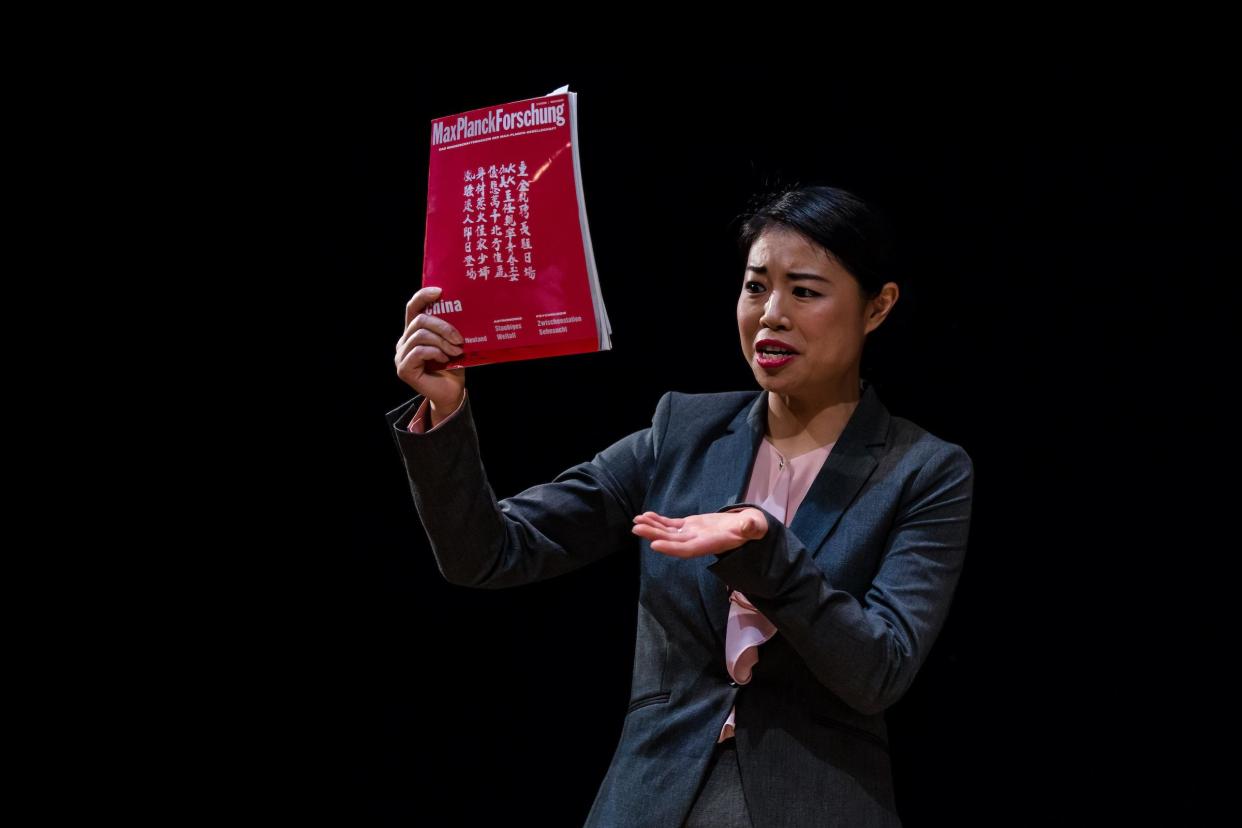Park Theatre play offers rare non-stereotypical parts for Asian actors, says Chinglish star Candy Ma

An actress who took part in protests against the “yellowface” casting of white performers as Chinese characters said her new role is a “rare” example of a “non-stereotypical” Asian woman on the London stage.
Candy Ma, 36, plays Xi Yan, Chinese vice minister of culture, who starts a romantic relationship with visiting American businessman Daniel, played by Gyuri Sarossy, in Chinglish.
Written by Tony Award-winning playwright David Henry Hwang, the comedy was a hit on Broadway in 2011 and received its UK premiere at the Park Theatre last night.
Ma, a Chinese-born British citizen, said: “My character is strong, sexy, very intelligent and complex. She has different layers to her like real people do. That’s not the type of role you normally see for an East Asian woman. She’s not submissive or working in a restaurant.”
The actress joined Gemma Chan and Benedict Wong to demonstrate against “racist” casting in Howard Barker’s In The Depths of Dead Love at the Print Room in Notting Hill in January.
Although set in ancient China, the cast was comprised entirely of white actors with some playing discernibly Chinese characters.
The Print Room has apologised for “any offence caused” and said in statement the “very English play” was “cast accordingly.”
Ma said: “I moved to London 12 years ago and I have found it very open creatively with casting directors seeing British East Asian actors for other roles. The play at the Print Room was set in ancient China and they didn’t even see any British East Asian actors at the casting.
“I normally don’t like to call things racist. But their reason was that the play was ‘very English.’ Does that mean the East Asian actors born here aren’t seen as English?”
Ma said Chinglish was a “very funny” take on East-West relations and showed a side of modern China not normally seen.
The play runs until April 22.

 Yahoo News
Yahoo News 
